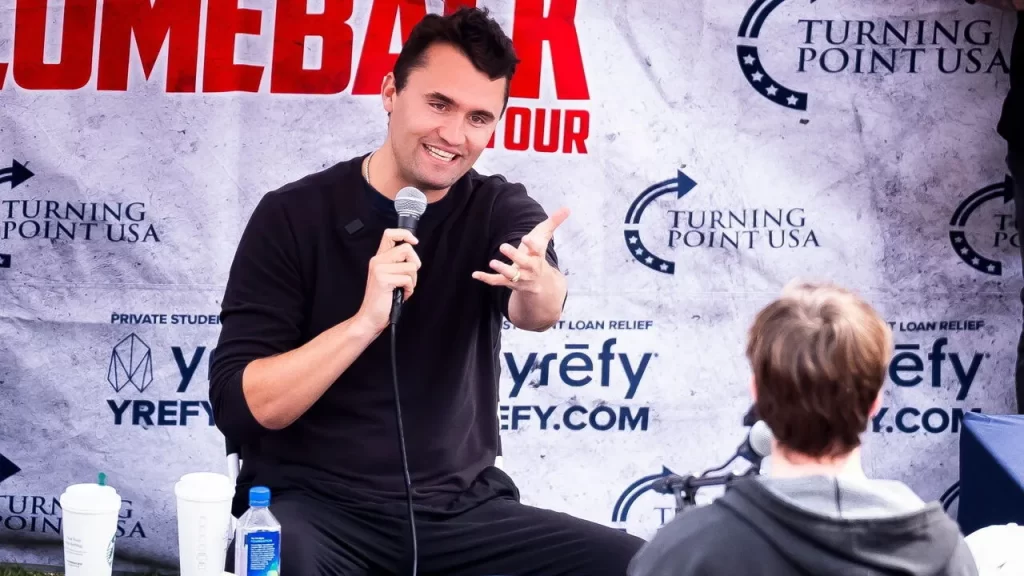Charlie Kirk, the 31-year-old co-founder of Turning Point USA, was shot and killed on September 10, 2025, during a speaking event at Utah Valley University. His sudden death left his supporters stunned, but for many others, it felt like a moment of reckoning. Kirk built a career on spreading division and inflaming tensions, and in the end, the chaos he unleashed seemed to return to him.
A Career Built on Provocation

From the moment he launched Turning Point USA at age 18, Kirk made it clear that his mission was not simply to champion conservatism, but to provoke. He was a loyal supporter of Donald Trump and proudly positioned himself as a fighter against what he labeled “woke culture.” Along the way, he weaponized rhetoric that many saw as racist and inflammatory.
He once claimed that gun violence in Chicago was due to a “lack of fathers in the Black community.” He dismissed the concept of white privilege as a “racist idea.” He even called Martin Luther King Jr. “awful” and “not a good person,” going as far as to argue that the Civil Rights Act created nothing more than a bureaucracy of victimhood. These comments weren’t accidental, they were calculated soundbites designed to spark outrage and cement his standing with his base.
Kirk also turned his attention to Haitian migrants. In Springfield, Ohio, he amplified an unverified rumor that Haitian immigrants were kidnapping and eating pets, despite local officials debunking the claim. He branded Haitian migration part of what he called the “Biden-Harris mass immigration replacement plan” and at one point declared that “Haitians will become your masters” if Democrats stayed in power. These remarks, steeped in xenophobia and conspiracy, drew heavy criticism but won him attention in conservative circles.
The Ironic End
Kirk was no stranger to talking about guns. One of his most striking admissions was: “I fully acknowledge and admit when you allow gun ownership you’re going to have gun deaths. There is a cost to liberty… But the positives far outweigh the negatives.”
It is a bitter irony that he himself was killed by a bullet while on stage, addressing an audience of students. A man who often celebrated firearms as symbols of liberty ultimately became a casualty of the violence he acknowledged as inevitable.
Authorities confirmed that the fatal shot came from outside the courtyard. The suspect was described as a white man, though no identity has been released. The killing sent the campus into chaos and reignited national debates over gun violence, extremism, and political hatred.
The Karma of Hate
For his supporters, Kirk was a warrior for free speech, a martyr of the conservative movement. For his critics, he was a provocateur who thrived on dividing people and vilifying communities of color and immigrants.
His death has become a stark reminder of the truth many tried to tell him: words have power. The hate you give out into the world does not disappear—it circles back. The very energy Kirk put into the universe, in the form of prejudice, fear, and aggression, now defines the way many will remember him.
Charlie Kirk spent his career warning that liberty comes with a cost. In the end, the cost was his own life. Whether seen as tragedy or karmic consequence, his death underscores a sobering truth: hate, once unleashed, never stays still. It finds its way back.

